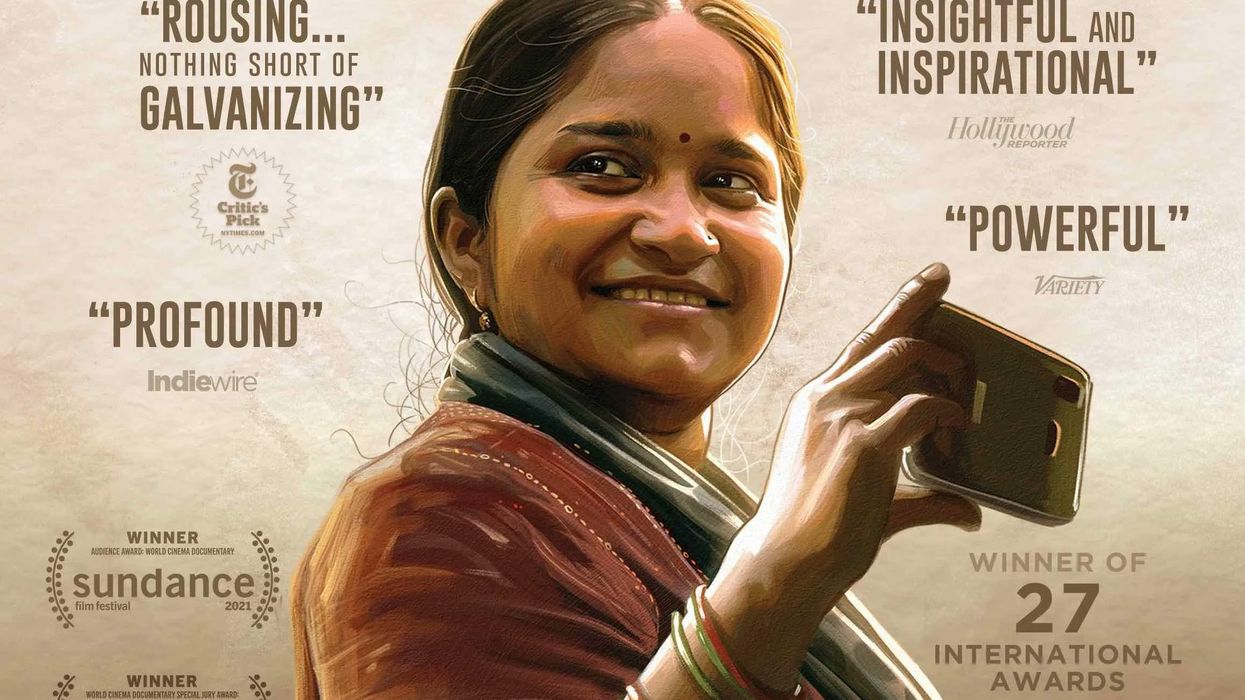Writing With Fire, an Indian documentary that chronicled the rise of a newspaper run by Dalit women, lost to Summer of Soul (Or, When the Revolution Could Not Be Televised) in the best documentary feature category at last Sunday’s Academy Awards.
The film, India's sole representation at the Academy Awards, was considered a dark horse in the Oscars race with its feel-good story of Khabar Lahariya, India's only newspaper run by Dalit women.
It is directed by filmmakers Rintu Thomas and Sushmit Ghosh. However, weeks before the awards ceremony, the newspaper organisation issued a lengthy statement saying the documentary did not accurately present their story. It was not immediately clear if the controversy affected the documentary's chances at the Oscars.
Last week, Khabar Lahariya editor Kavita Bundelkhandi said the film portrayed the newspaper "inaccurately" by insinuating that it only focuses on reporting on issues surrounding "one political party".
"The documentary portrays our work inaccurately because it shows only a part of what we do and shows that ours is only about one political party," Bundelkhandi said, without naming the political party.
She said they were proud that a documentary was made on their achievements, but added her wish was for a “more rounded portrayal”.
Previously, the documentary made a mark for itself in international festival circles.
When the Oscar nominations were announced in February, Ghosh said, “This is a massive moment for us and for Indian cinema. This film is about fearless Dalit women journalists who are redefining what being powerful means, quintessentially the story of the modern Indian woman.”
Summer Of Soul, the winner in the documentary feature category, is directed by the Roots frontman Ahmir Thompson, best known by his stage name Questlove.
The film is backed by David Dinerstein, Robert Fyvolent, and Joseph Monish Patel, an American producer of Indian origin. He said he was the first Patel to win an Oscar.
For the film, Thompson arranged never-seen-before archival footage of the Harlem Cultural Festival, celebrating African American music and culture, and promoting black pride and unity, attended by 300,000 people in the summer of 1969.
He paid tribute to "the marginalised people in Harlem that needed to heal from pain".
"It's not lost on me that the story of the Harlem Cultural Festival should have been something that my beautiful mother and my dad should have taken me to when I was five years old," Thompson added.
He added that black cultural institutions and expressions are still ignored in contemporary pop culture.
"Just know in 2022, this is not just a 1969 story about marginalised people in Harlem. This is a story of... I'm sorry, I'm just overwhelmed right now," he said.
Like the feature CODA, the acclaimed documentary feature was a festival favourite winning both the grand jury and audience awards in the US Documentary Competition category after its world premiere at the Sundance Film Festival 2021.
Other nominees in the best documentary feature category were Ascension, Attica, and Flee.




